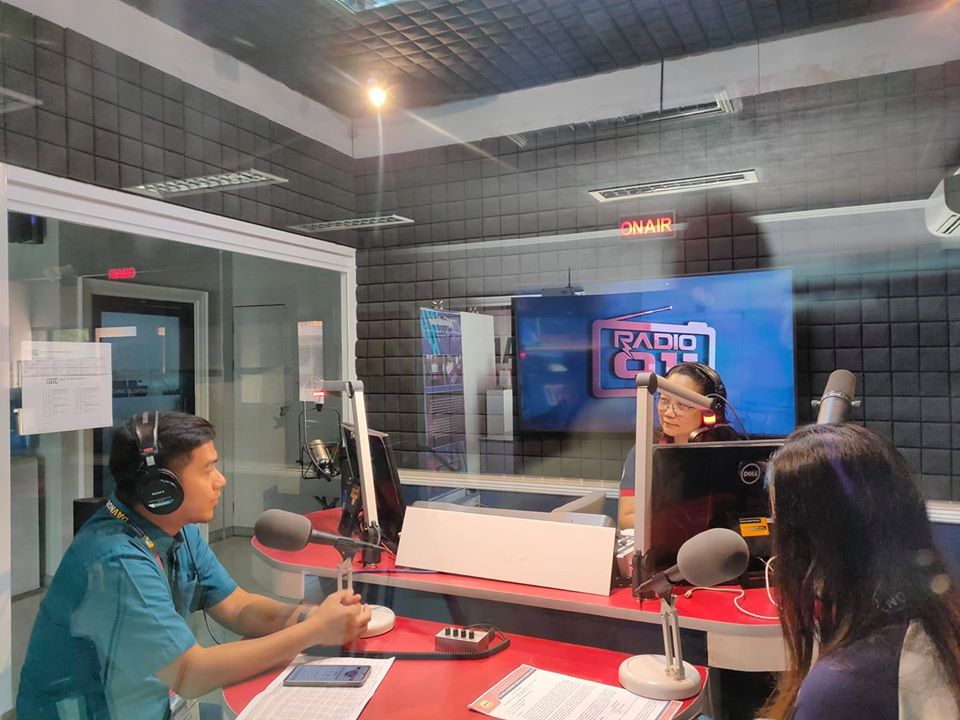DAVAO DEL NORTE (PIA) – Creating a national law that would ban single-use plastic is needed on top of a provincial memo circular, the Department head of the Provincial Environment and Natural Resources Office (PENRO) Davao del Norte said.
PENRO Davao del Norte Department Head Romulo Tagalo expressed his views this morning during the Radio 911 Pakigsayod program which tackled discussion the persisting problem of single-use plastic and how to effectively solve it.
He suggested the Republic Act on banning the single-use plastic to incorporate the “extended producers responsibility (ERP)” to put the responsibility of keeping end-product wastes on plastic manufacturers and suppliers.
“Last year nag issue ang provincial governor ug admin order banning the use of single-use plastic, pero ang problema lagi kay murag wala pa gihapon madawat kay up to now, makita nato nga daghan pag bottled water, stirrers [nga plastic] (Last year the provincial governer issued an admin order banning the use of single-use plastic, but the problem is that it seems to have not been adopted. We can still see a lot of bottled water, stirrers and other single-use plastic products,” said Tagalo.
Provincial Government of Davao del Norte had already gone way ahead of implementing the ban of single-use plastic before the recent issuance made on Monday by the Department of Environment and Natural Resources (DENR) to prohibit single-use plastics in all government offices.
He pointed out that the pressure and burden on waste segregation has mostly been focused on barangays, and Local Government Units (LGUs).
“Dili na pud tama. Kay kita diri sa LGU mga recipients raman ta sa mga gina produce [plastics] sa mga manufacturer. Bisag unsaon nato ug segregate, taas ra jud kaayo ang volume (It’s not right. Because the LGUs are just the recipients of these products [plastics] by the manufacturers. No matter how much we segregate, the volume is just too much),” added Tagalo.
He explained that consumers being held responsible for the products they consumed is no longer acceptable especially in developed countries, and that “the producers should be the ones responsible in keeping the packages of their products”.
Citing the first world countries’ practice of Extended Producer Responsibility (EPR), Tagalo is optimistic that the Philippines could benefit from the same policy if it is implemented.
EPR is a policy which gives producers a significant responsibility for the treatment or disposal of post-consumer products.
He assured, however, that for the meantime, the provincial government has already taken action to address the problem, locally.
Under the project dubbed as "BASURESIKLO: Gasa ni Kuya, Baylo sa Basura", the administration of Gov. Edwin I. Jubahib has already carried out a buy-back scheme where the students of selected public schools can gather and trade unprofitable plastics in exchange of incentives such as school supplies.
The plastic products accepted in the buy-back scheme included shampoo sachets, junkfood wrappers, PET bottles or any plastic that junkshops don’t usually buy.
PET (polyethylene terephthalate) ,bottles and containers are used to package soft drinks, water, juice, peanut butter, salad dressings and oil, cosmetics and household cleaners. (Jan Vincent Leuterio, UM Tagum OJT/PIA Davao del Norte/jmda)


